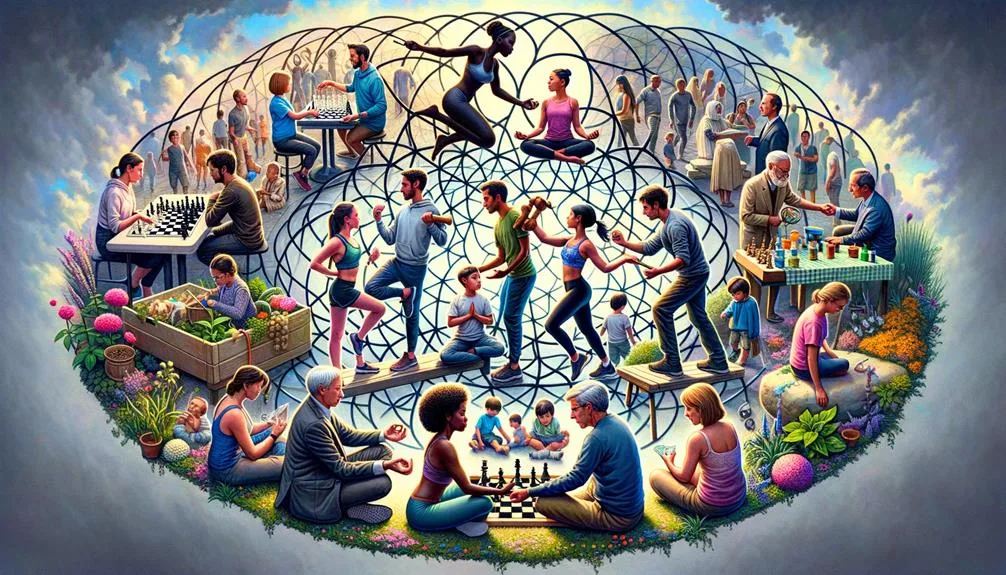Have you ever questioned whether our behaviors are purely a result of our own choices and experiences?
While it's easy to believe that we have complete control over our actions, Bandura's Social Learning Theory challenges this notion. By acknowledging the power of observation and the influence of our environment, this theory suggests that our behavior is not solely determined by our individual experiences, but also by the behaviors we witness in others.
Some may argue that our behaviors are solely a product of our own decisions, but by exploring Bandura's Social Learning Theory, we can uncover a deeper understanding of the complex factors that shape our actions.
So, let's unravel the mysteries of human behavior together and discover the impact of social learning on our everyday lives.
Key Takeaways
- Albert Bandura developed the social learning theory in the 1960s and later expanded it into the social cognitive theory in 1986.
- According to Bandura's theory, learning involves interacting with the environment and making a permanent change in knowledge or behavior.
- Both environmental and cognitive factors influence human learning and behavior.
- Behaviors are acquired through a combination of reinforcement and imitation.
Background of Bandura's Social Learning Theory
Albert Bandura's social learning theory, which later evolved into the social cognitive theory, is a significant psychological framework that explores how individuals learn and develop behavior through their interactions with others and their environment.
The development of this theory has had a profound impact on education. Bandura emphasized that learning isn't solely based on direct experiences, but also on observing others and the consequences they face. This insight has influenced educational practices by highlighting the importance of role models and the power of vicarious learning.
Teachers can effectively use modeling to teach new skills and behaviors, as students learn by observing and imitating their instructors. Bandura's social learning theory has provided valuable insights into the educational process, allowing educators to create environments that foster positive learning experiences.
Understanding the Social Learning Theory
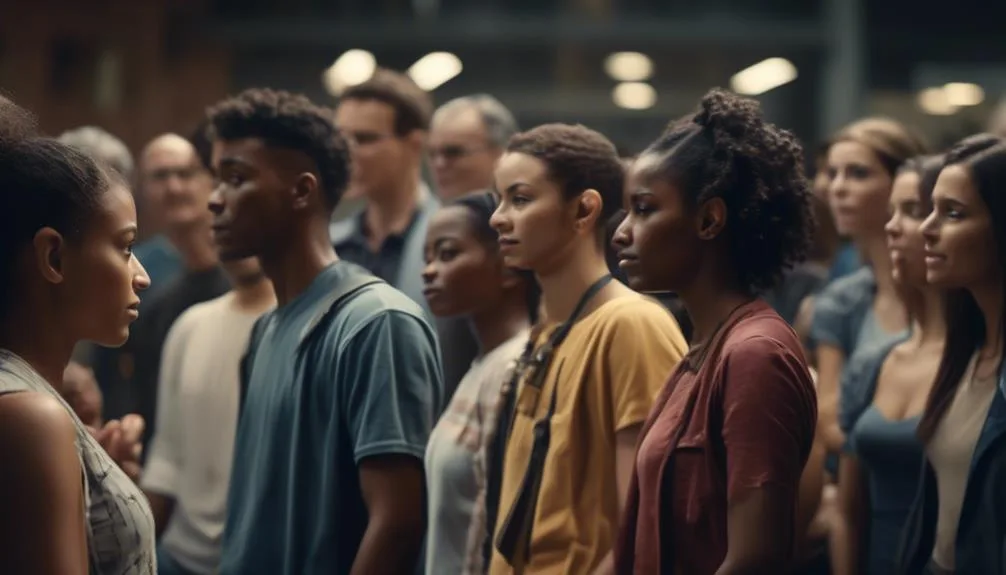
Bandura's social learning theory, which has greatly influenced education, provides a comprehensive understanding of how individuals learn and develop behavior through their interactions with others and their environment. According to this theory, learning occurs through observation and interaction with others in a social context.
Role modeling plays a crucial role in education, as individuals learn by observing and imitating the behaviors of others. This theory also finds applications in therapy, where it helps therapists understand how specific behaviors have developed and how to intervene as role models or to encourage positive change.
Real-Life Examples and Studies
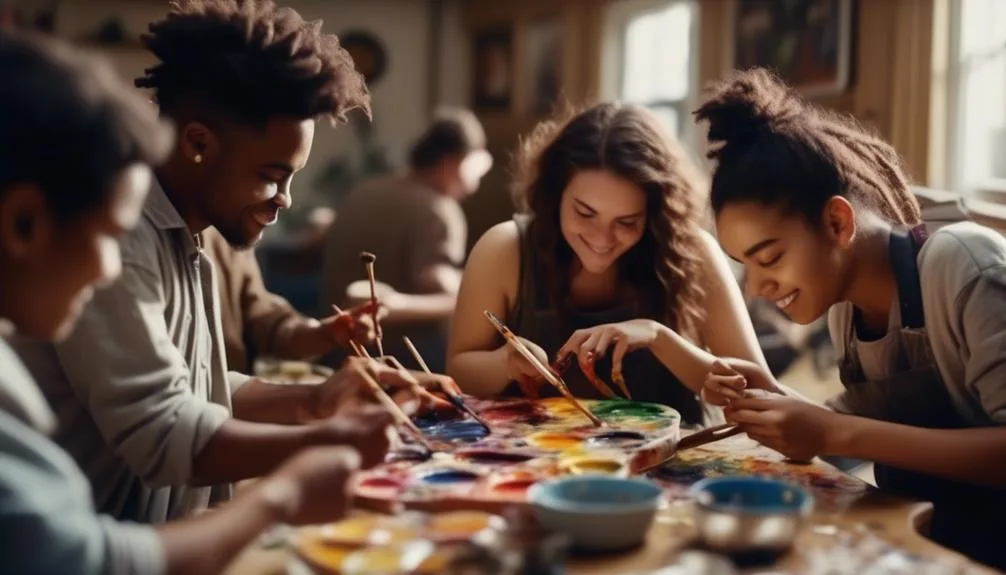
Real-life examples and studies provide empirical evidence for the application and effectiveness of Bandura's social learning theory in understanding human behavior and learning processes.
In the field of criminology research, Bandura's theory has been valuable in explaining criminal and deviant behavior at both micro and macro levels. For instance, studies have shown that aggressive behaviors are learned through reinforcement and imitation of aggressive models. Factors such as realistic settings, justification or reward of violence, and graphic depiction of victims' suffering influence the acquisition of aggressive behaviors from violence on TV and in films.
In the realm of education, role modeling plays a significant role in the development of prosocial behavior. Understanding how specific behavior has developed and how to intervene as role models or encourage others is crucial for teachers and social workers.
Fascinating Experiments and Studies
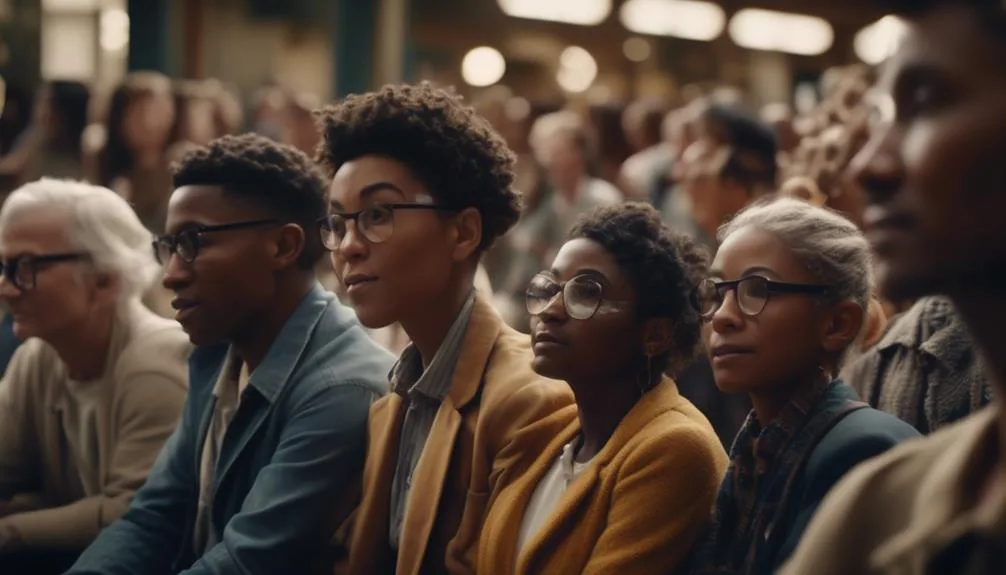
Numerous fascinating experiments and studies have been conducted to explore and validate the principles of Bandura's social learning theory, shedding light on the intricate processes of human behavior and learning.
One notable experiment is the Bobo doll experiment conducted by Bandura himself. This experiment showed that children who witnessed aggressive behavior were more likely to display it themselves, highlighting the role of observation and imitation in learning aggression.
Another area of study is the influence of TV on children's behavior. Studies have shown that the introduction of TV in communities didn't lead to noticeable differences in children's behavior, suggesting that contextual and cultural factors can moderate exposure to media violence or aggressive behavior.
These experiments and studies provide valuable insights into the mechanisms of social learning and its impact on human behavior.
Combining Biological Perspective With SLT
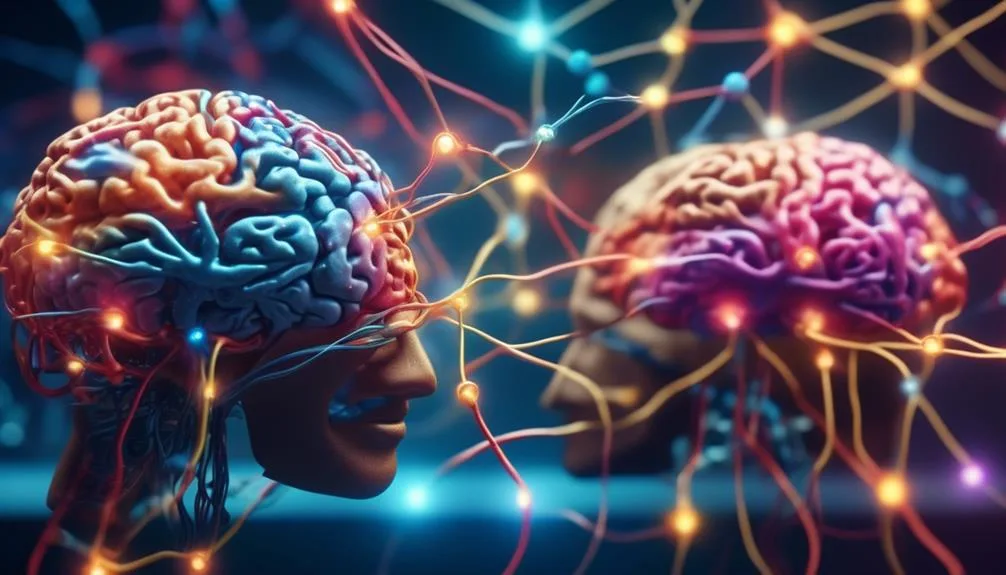
Combining the biological perspective with the Social Learning Theory offers a comprehensive understanding of human behavior by exploring the interplay between social origins and biochemical processes. This integration reveals the implications for criminal behavior and the link between genetics and social learning.
Here are four key points to consider:
- Genetic predispositions: Biological factors play a significant role in shaping an individual's behavior. Genetic predispositions can influence susceptibility to certain behaviors, such as aggression or impulsivity, which can be further reinforced through social learning.
- Neurochemical processes: Biochemical processes in the brain, such as the release of neurotransmitters, can impact learning and behavior. For example, low levels of serotonin have been associated with increased aggression, while dopamine activity can affect reward-seeking behaviors.
- Epigenetics: Epigenetic mechanisms, which involve modifications to gene expression, can be influenced by both genetic and environmental factors. These modifications can influence an individual's susceptibility to certain behaviors and their likelihood of engaging in criminal activities.
- Gene-environment interactions: The interplay between genetics and social learning is complex. Genetic factors can shape an individual's susceptibility to environmental influences, while environmental factors can affect how genes are expressed. Understanding this interaction can provide insights into how criminal behavior develops and how it can be prevented or treated.
Strengths and Weaknesses of SLT
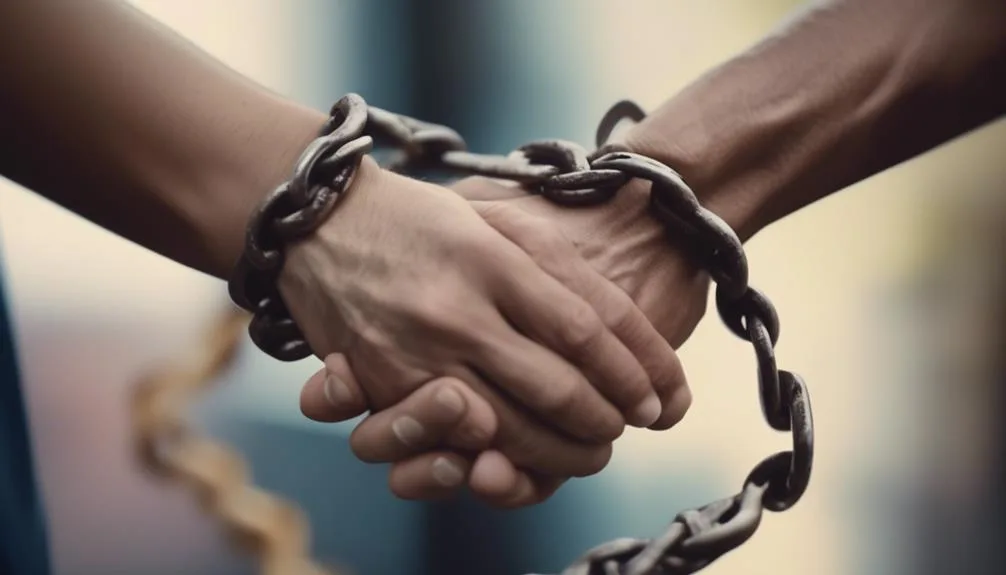
The Social Learning Theory, despite its valuable insights into the interplay between social origins and biochemical processes, has both strengths and weaknesses worth examining.
One of the strengths of the theory is its flexibility in explaining various ways of behaving and learning. It recognizes that learning can happen through observation and direct experiences, and it has been applied in various settings, showing strong relationships between social learning concepts and behavior. Additionally, the theory acknowledges that the degree, probability, and frequency of reinforcement impact imitation, which is supported by studies involving children observing aggression.
However, there are also weaknesses in the Social Learning Theory. One weakness is that it doesn't consider accountability in actions. The theory suggests that behavior is primarily context-dependent, ignoring the fact that individuals have personal responsibility for their actions. Another weakness is that it ignores developmental milestones that occur irrespective of the environment. This limitation fails to acknowledge the inherent growth and development that individuals experience regardless of social influences.
Additionally, the theory doesn't account for behavior when there's no role model and fails to explain how negative behavior can occur without prior exposure to it. Lastly, ethical issues make it difficult to test the Social Learning Theory in certain experiments, limiting its practical application.
Frequently Asked Questions
How Did Albert Bandura Become Interested in Psychology and Develop the Social Learning Theory?
Albert Bandura became interested in psychology and developed the social learning theory due to his curiosity about how people learn and acquire behaviors. He believed that learning occurs through observation, reinforcement, and imitation, and his theory has been applied in various fields beyond criminology. Notable experiments, such as the Bobo doll experiment, support and expand upon the theory.
What Are Some Key Concepts and Principles of Bandura's Social Learning Theory?
In Bandura's social learning theory, key concepts include learning through observation, reinforcement, and imitation. Principles focus on the role of the environment and cognitive factors in shaping human behavior.
How Does the Social Learning Theory Explain the Acquisition of Aggressive Behaviors in Individuals, Especially in Children?
The social learning theory explains how children acquire aggressive behaviors. Factors such as reinforcement and imitation of aggressive models play a role in this acquisition. Observing others being rewarded for aggression can reinforce these behaviors in children.
Can the Social Learning Theory Be Applied to Fields Other Than Criminology, Such as Social Work or Education?
Yes, the social learning theory can be applied to fields other than criminology. It has valuable applications in social work, helping professionals understand behavior development, and in education, using role modeling as a teaching method.
Are There Any Other Notable Experiments or Studies That Have Supported or Expanded Upon Bandura's Social Learning Theory?
Notable experiments supporting Bandura's social learning theory include the Bobo doll experiment, which showed that witnessing aggression increases the likelihood of displaying it. Cognitive factors, such as perception and reinforcement, influence social learning.
Conclusion
In conclusion, Bandura's Social Learning Theory offers a comprehensive understanding of how our behaviors are shaped through observation, imitation, and reinforcement. This theory highlights the significant role of external influences, such as media and role models, in shaping our actions and thoughts.
Through fascinating experiments and studies, Bandura's theory has provided valuable insights into various aspects of human behavior. However, it's important to acknowledge the strengths and weaknesses of this theory in order to fully grasp the complexities of human behavior.
Ultimately, by unmasking the intricacies of human behavior, Bandura's Social Learning Theory enhances our understanding of how we learn and adapt to the world around us.

